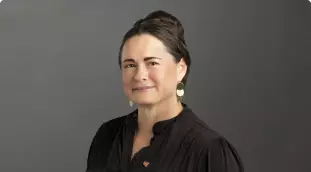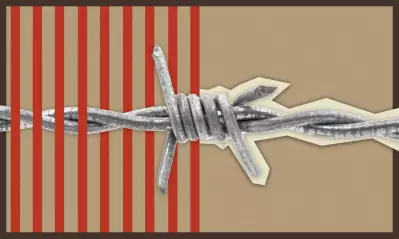College of Social & Behavioral Sciences
Associate criminal justice degrees
Prepare for a career in criminal justice
Gain insight into criminal justice and corrections with an associate criminal justice degree. Learn skills you need to prepare for a career path in the criminal justice system. Explore agencies at the federal, state and local levels to support and protect your community.
The best part? You get to learn from experienced law enforcement faculty including corrections, parole and probation, lawyers, judges, chiefs of police, detectives and administrators who are ready to bring their knowledge to the next generation of criminal justice students like you. And with all our courses being 100% online and only 5 weeks long, you’ll have the flexibility to build the leadership skills you're looking for, on your terms.
Let's get started
Find the criminal justice associate degree for you
Skills you’ll develop with core associate criminal justice degree courses
ASSOCIATE OF ARTS IN CRIMINAL JUSTICE
- Enforcement
- Sociology
- Communication
Earn career-relevant skills in weeks – not years
Get value from your education before you even graduate. Update your resumé and LinkedIn profile with learned skills when you complete every 5- or 6-week course in our associate, bachelor's and master's programs.

Outlook for workers with an associate criminal justice degree
Online associate criminal justice degree course requirements
Associate of Arts in Criminal Justice
You’ll take 6 core courses with program-specific knowledge in law enforcement and criminal justice to help you gain confidence and skills needed to thrive in criminal justice. These core courses include topics like: cultural diversity in criminal justice, introduction to police theory, practices, corrections and more.
Tuition and financial aid
Affordable, locked-in tuition

Ways to pay — and save. Explore your options.
From grants and scholarships to transfer credits and federal financial aid, there are a variety of ways to pay for school and save on tuition for your criminal justice degree.
Student experience

“Remember why you decided to take this step, and that will be your new chapter. Never settle. You’ve got this!”
—Jtrenae H.
AACJS, 2022
Over 1 million alumni have earned their degrees while balancing work, school and life. So can you.
How to apply for your online associate criminal justice degree
Once you’ve selected your degree program, choose your start date from our calendar, apply for free and register before the deadline (usually one week before the program starts). Then you’ll speak to an enrollment representative to begin class.
- No application fee
- No SAT, GMAT or essay required
- Our risk-free trial lets eligible students try out University of Phoenix for three weeks with no financial obligation

Meet your college deans
Our college deans focus on developing a career-relevant curriculum. They bring industry experience to the classroom and lead a faculty of academic professionals with one goal in mind—to help you earn the skills you need to pursue your career.

Christina Neider, EdD
Dean, College of Social and Behavioral Sciences

Franzi Walsh, DBA
Associate Dean, College of Social and Behavioral Sciences
Institutional accreditation
University of Phoenix has been continually accredited by the Higher Learning Commission (HLC), hlcommission.org since 1978.
Associate criminal justice degree FAQs
Associate degree programs typically take two years to complete. However, your time to completion will be impacted by other factors, including eligible transfer credits and any breaks in your studies at the University. You may be able to save time and money on your associate criminal justice degree by transferring eligible credits from an accredited institution or applying to have your relevant work and life experiences evaluated for potential credit toward your degree.
Yes, all our courses are available 100% online. Where most colleges expect you to take several courses at once, here you take one course at a time over five weeks in an innovative, virtual, asynchronous learning environment. You and your peers will engage in discussions, assignments and learning activities. Plus, you’ll learn from faculty who bring their own real-world experience and practice the same knowledge and skills they teach, all while learning industry-relevant skills necessary to promote your career growth. What’s more? Throughout the course of your learning experience, our academic counselors and finance advisors are always there to answer your questions.
You can continue your education by pursuing a bachelor’s degree in criminal justice. If you’re looking to build knowledge and career-relevant skills, an online bachelor’s degree can help you take that next step in your career.
You may be able to save time and money on your associate criminal justice degree by transferring eligible credits from an accredited institution or applying to have your relevant work and life experiences evaluated for potential credit toward your degree. Speak with an enrollment representative to start the process of evaluation by the University to see if your prior college credits can apply to your program and to request your transcripts.


